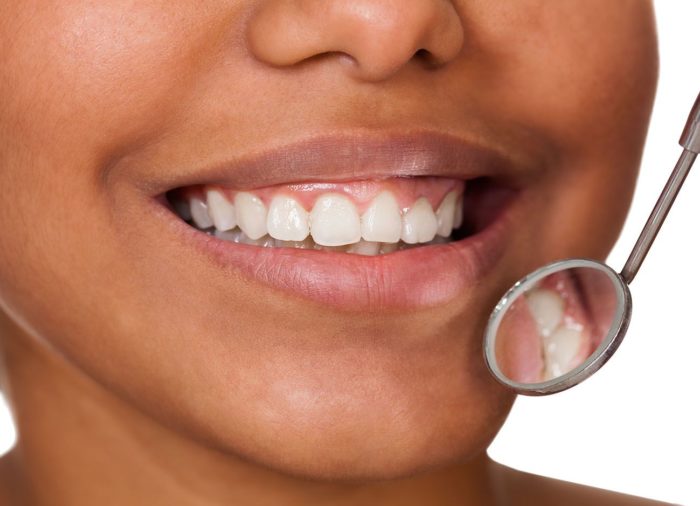A dazzling white smile can capture the attention of an entire room. White teeth can instill confidence in yourself and others. Additionally, having white teeth can mean that you have healthy, brilliant teeth. However, if the whiteness of your teeth is splotchy, it could be a sign of a serious dental issue.
If you notice white spots on your teeth, you should talk to your dentist right away. White spots are portions of your teeth that are whiter than others. Even if you have white teeth, you can still notice white spots. White spots can develop at any time, so it is important to be aware. There are several issues that can cause white spots. Discovering the true cause is vital for treatment.

Poor Oral Hygiene
One sign of poor oral health is the appearance of white spots. White spots can occur when there is an overproduction of plaque. Unfortunately, plaque is a type of harmful bacteria that can damage the enamel on your teeth. An excessive amount of plaque can erode your enamel. As a result, you can see small white spots on your teeth.
When white spots show up due to poor oral hygiene, it is because the plaque removes vital minerals from your enamel (demineralization).
One way to reverse these white spots is to improve your oral health. For example, brushing twice a day and flossing daily can remove plaque from all surfaces of your mouth. In addition, you may talk to your dentist about mouthwash to boost your oral health and re-mineralize your enamel.
Excessive Fluoride
Fluoride is a mineral that is vital to the health of your teeth. In fact, most toothpaste, mouthwash, and even floss have elements of fluoride to improve your oral health. However, fluoride is a naturally occurring element that can be found in most water supplies.
While fluoride strengthens your teeth, it is possible that you can overexpose your teeth to it. When this happens, your teeth can decay. Overexposure to fluoride usually happens in children after swallowing too much fluoride toothpaste.
Diet
Sometimes your diet can cause white spots. Typically, acidic foods are the culprit behind this type of erosion. Acid destroys the enamel as it breaks down chemically. Additionally, foods and beverages that have a high sugar content can also wear away your enamel. This is because the bacteria consume the sugar, creating an acid.
While dietary acid is a problem, it is also possible that gastric acid can damage your enamel. If you have acid reflux, you should talk to your doctor.
Vitamin Deficiency
Another way that you can develop white spots is due to a vitamin deficiency. A vitamin that is essential for healthy teeth is calcium. If you lack calcium or calcium absorption, you may start to see white spots form on your teeth. Calcium is necessary to support your bones, blood clotting, heart rhythms, and nerve function.
If you see white spots, you should talk to your dentist before you develop any serious medical issues.
